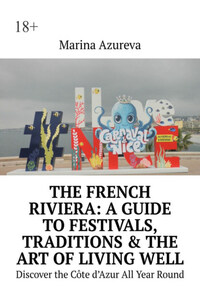Known for its stunning Mediterranean coastline and vibrant cultural scene, offers a plethora of festivals and events throughout the year that captivate both locals and visitors. If you’re planning a trip to Nice and wish to immerse yourself in the region’s rich traditions without the obligation of work, timing your visit to coincide with these celebrations can be truly rewarding. Here’s a guide to some of the most notable festivities formed in “Annual holiday cycle” chapter. French traditions and the renowned “savoir-vivre” vividly manifest in their holidays. Let’s explore how joyous events and days off are distributed throughout the year.
Imagine a winter’s evening in France, where the air hums with the scent of cinnamon and pine, and village squares glow beneath constellations of golden lights. This is the season when France dons its most enchanting attire – a time when cobblestone streets echo with carols. Every home becomes a stage for centuries-old traditions.
From the snow-dusted peaks of the Alps to the sun-kissed shores of the Riviera, Christmas and New Year unfold like a storybook, blending sacred reverence with the warmth of shared joy.
Picture the marchés de Noël in Nice, their wooden stalls brimming with hand-painted santons and cooked chestnuts. Hear the laughter of children as they whisper wishes to Père Noël, and feel the anticipation of le Réveillon, where tables groan under foie gras, oysters, and the delicious bûche de Noël. In Provence, families count down to midnight Mass with Les Treize Desserts, a sweet symphony of dried fruits and nougat, while Parisian boulevards shimmer with illuminations that rival the stars.
This is a season where the past and present dance – a traditional midnight kiss under mistletoe, the pope’s blessing broadcast from Rome, and the president’s solemn address before fireworks paint the sky. France invites you to wander its festive tapestry, where every tradition is a thread connecting hearts and history. Come, step into the glow of a French winter, where magic is not merely felt – it is lived.
In the sun-drenched south of France and the Principality of Monaco, cultural and sporting events unfold weekly, ranging from intimate local gatherings to globally renowned spectacles. This guide explores the annual festive cycle of the French Riviera, highlighting world-famous celebrations in Nice and Monaco where everyone is welcome to participate.
Essential Phrases and Cultural Tips for Traveling to the French Riviera
The French Riviera, or Côte d’Azur, is a stunning destination known for its glamorous cities, beautiful beaches, and rich cultural heritage. While many locals speak English, making an effort to communicate in French can enhance your experience and help you connect with people more authentically. Here are some essential phrases, cultural tips, and etiquette guidelines to ensure a smooth and pleasant visit.
Basic French Phrases
Knowing a few key phrases will help you navigate daily interactions and show respect for the local culture:
Bonjour (bohn-zhoor) – Hello (used formally during the day)
Bonsoir (bohn-swahr) – Good evening
Merci (mehr-see) – Thank you
Merci beaucoup (mehr-see boh-koo) – Thank you very much
S’il vous plaît (seel voo pleh) – Please
Excusez-moi (ehk-skew-zay mwah) – Excuse me
Combien ça coûte? (kohm-byen sah koot?) – How much does it cost?
Parlez-vous anglais? (par-lay voo ahn-glay?) – Do you speak English?
Je ne parle pas bien français (zhuh nuh parl pah byen frahn-say) – I don’t speak French well
Comment aller au musée? (koh-mahn ah-lay oh myoo-zay?) – How do I get to the museum?
Où est l’arrêt de tramway? (oo eh lah-ray duh tram-way?) – Where is the tram stop?
L’addition, s’il vous plaît (lah-dee-syohn seel voo pleh) – The check, please /Used in restaurants to request the bill./
Où sont les toilettes? (oo sohn lay twa-let?) – Where are the restrooms?
Au revoir (oh ruh-vwahr) – Goodbye
A friendly “Bonjour” before starting a conversation is essential, as it sets the right tone and is considered polite.
Politeness and Social Etiquette
French social interactions place a strong emphasis on politeness and respect. Here are some cultural nuances to keep in mind:
Always Greet with a “Bonjour” – Whether entering a shop, restaurant, or asking for directions, always begin with a polite greeting.
Use “Vous” Instead of “Tu” in Formal Situations – The formal “vous” is used when speaking to strangers, elders, or professionals. “Tu” is reserved for friends and close acquaintances.
Soft, Indirect Communication – The French often use indirect phrasing to be polite. Instead of a direct “I want…,” it’s more polite to say “Je voudrais…” (I would like…).
Dining Etiquette – In restaurants, service is often more relaxed than in the U.S. Waiters do not check in frequently, and it is customary to ask for the bill instead of expecting it automatically.








